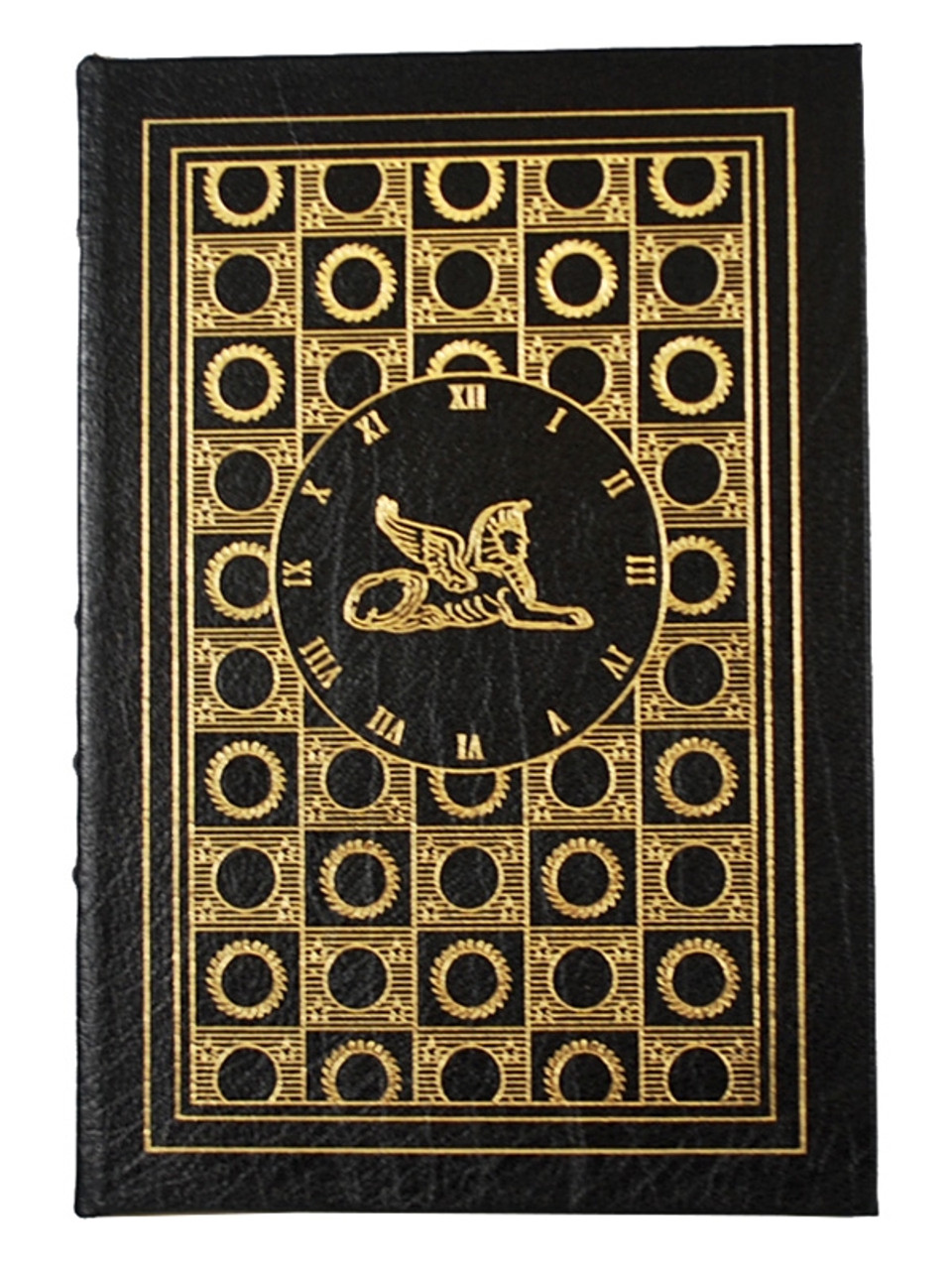- Introduction by J. B. Priestley
- Foreword by George Zebrowski
- Illustrated by Joe Mugnaini
H.G. Wells was a writer of science-fiction works-including The Time Machine and War of the Worlds-who had a great influence on our vision of the future.
Born in England in 1866, H.G. Wells's parents were shopkeepers in Kent, England. His first novel, The Time Machine was an instant success and Wells produced a series of science fiction novels which pioneered our ideas of the future. His later work focused on satire and social criticism. Wells laid out his socialist views of human history in his Outline of History. He died in 1946.
Visionary writer H.G. Wells was born Herbert George Wells on September 21, 1866, in Bromley, England. Wells came from a working class background. His father played professional cricket and ran a hardware store for a time. Wells's parents were often worried about his poor health. They were afraid that he might die young, as his older sister had. At the age of 7, Wells had an accident that left him bedridden for several months. During this time, the avid young reader went through many books, including some by Washington Irving and Charles Dickens.
After Wells's father's shop failed, his family, which included two older brothers, struggled financially. The boys were apprenticed to a draper, and his mother went to work on an estate as a housekeeper. At his mother's workplace, Wells discovered the owner's extensive library. He read the works of Jonathan Swift and some of the important figures of the Enlightenment, including Voltaire.
In his early teens, Wells also went to work as a draper's assistant. He hated the job and eventually quit, much to his mother's dismay. Turning to teaching, Wells soon found a way to continue his own studies. He won a scholarship to the Normal School of Science where he learned about physics, chemistry, astronomy and biology, among other subjects.
Wells also devoted much of his time to becoming a writer. During college, he published a short story about time travel called ""The Chronic Argonauts,"" which foreshadowed his future literary success.
The Time Traveller (for so it will be convenient to speak of him) was expounding a recondite matter to us. His grey eyes shone and twinkled, and his usually pale face was flushed and animated. The fire burned brightly, and the soft radiance of the incandescent lights in the lilies of silver caught the bubbles that flashed and passed in our glasses. Our chairs, being his patents, embraced and caressed us rather than submitted to be sat upon, and there was that luxurious after-dinner atmosphere when thought roams gracefully free of the trammels of precision. And he put it to us in this way-marking the points with a lean forefinger-as we sat and lazily admired his earnestness over this new paradox (as we thought it:) and his fecundity
The prose is an easy read, perhaps even at the junior high enjoyment level. The book is more about worker and economic theme than science fiction. Wells got the idea from a house where his mother was once employed as a maid. The servants who maintained the home would enter from an underground passageway so the residents would not have to look at them. The future world of 800,000 years from now has man evolved into 2 separate species according to our class. The upper world is described in terms of a communistic Eden (A characteristic of Wells). The view of communism as a utopian society was a preoccupation of the writers of that era. The modern totalitarian socialist state which passes itself as communism was not yet around.
The Eloi live above ground. They are small in stature and are a happy people who live in fear of the night, especially during the new moon. They live in the utopian world and are provided for by....the Morlocks. The Morlocks live underground and operate the machines (where they get the oil to run these things is unknown). They provide for the Eloi, something we do not see, but apparently done including weaving fine linen for them to wear. The Morlocks are describe as white humanistic lemurs who are the descendants of the working class. They care for the Enloi and in turn harvest them for food. Wells was using the division of the economic classes, extrapolated far into the future to show how we would evolve if society was kept as it was today."
Features
Includes all the classic Easton Press qualities:* Premium Leather
* Silk Moire Endleaves
* Distinctive Cover Design
* Hubbed Spine, Accented in Real 22KT Gold
* Satin Ribbon Page Marker
* Gilded Page Edges
* Long-lasting, High Quality Acid-neutral Paper
* Smyth-sewn Pages for Strength and Durability
* Beautiful Illustrations
- Publisher:
- Easton Press
- Edition:
- Easton Press (1998)
- Binding:
- Leather Bound (Full genuine leather)
- Illustrator:
- Limited Edition
- Dimensions:
- 10.5 x 6.9 x 1.4 inches

















